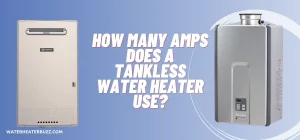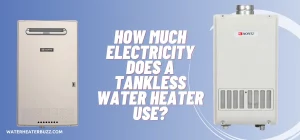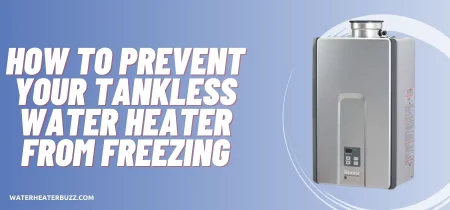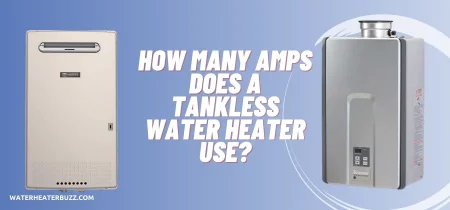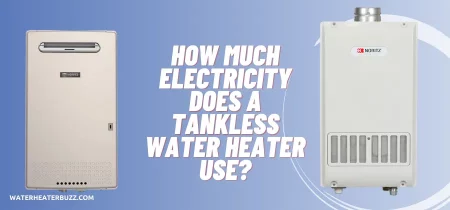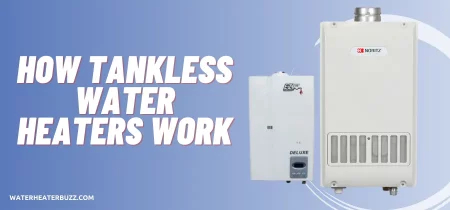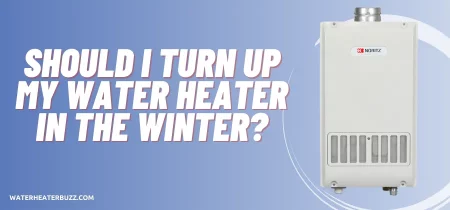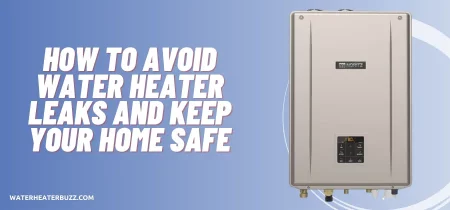Should I get the similar model of water heater that my neighbors have? There is a high possibility that you have just shifted to your new house or office and now you want an ideal water heater that suits consumers’ needs. In addition to arranging the other necessities, the thoughts of installing an appropriate water heater are stressing you out.
You must have a piece of primary knowledge that though all the heaters provide the hot water that might prolong the time for showers, significant differences make them suitable for specific situations. Similarly, gas and electric water heaters have several contrasting factors. I have differentiated these kinds in-depth to facilitate your decision. Let us see which one you will be installing in the near future.
Gas Vs. Electric Water Heater
Construction and Source
As their name suggests, electric water heaters require the source of electricity for heating the cold water. The outer material of water storage is usually made from stainless steel. Once the water enters through an inlet, its temperature starts rising via high voltage rods. These rods are vertically placed and cover a major portion of the tank. After water gets heated in the middle of the heater, it radiates in an outward direction. The thermostat allows consumers to set the temperature that is needed as well as monitor it.
These heaters come in multiple sizes and include both types: tankless and tank water heaters. Tankless type heaters are generally compact and more lightweight than the latter. The basic functioning of these electrical products is the same. When it comes to gas water heaters, these tanks need an adequate gas supply and connection for working. These tanks are larger in size and also are available in two kinds: tankless and tank.
Unlike electric heaters, these containers include a burner that utilizes gas for heating. It is present at the bottom area of the heater. As the water begins getting warmer, it becomes lighter and moves upward through a process termed convection. From there, a discharge tube draws the hot water away for consumption.
Installation Process
Whether you are about to install a gas water heater or an electric one, first, the process requires an inspection and permission. Electric water heaters have a more simple design than the other ones, thus easier to install. You do not require much voltage for small heaters, and they can perform well with 110 volts.
In addition, electricity is available mainly in all areas, while some sites do not have sufficient gas supply. Therefore, the installation cost is higher. In case of better gas service, you just need to form gas connections with the help of a plumber. Here, prices are lower for setup.
Storage Capacity
Electric heaters that are designed for single or few points provide hot water in the range between two and twenty gallons per minute. The tanks of moderate power have a capacity of a minimum of 30 gallons and a maximum of 50 gallons. On the other hand, the heaters that are highly powerful and used for various applications start at 40 gallons and can reach a maximum of 120 gallons. There are no point-of-use gas heater models. A wide range of tanks available in the market has the storage for 40 to 100 gallons of water. The powerful ones can reach the capacity of 150 gallons.
Price
In terms of cost, the prices of most of the gas and electric water heaters overlap or do not have significant differences. However, in general, electric heaters are less costly than the other ones. The least amount of money one will have to pay for an electric heater is 500 dollars, and the maximum is 800 dollars. On the contrary, a majority of gas heaters are available at 600 dollars. The powerful ones are approximately 700 dollars. Therefore, if you want a water heater on a limited budget, you might want to select an electric heater.
Operational Cost
The running cost associated with a gas heater is lower than that of an electric water heater. So, with a gas heater, you will be able to conserve a significant amount of money per year. It is due to the fact that electricity is more expensive than natural gas. However, the modern tankless electric heaters involve lower running costs since they are highly energy efficient.
Safety
The safety of a product you are about to bring to your house is one of the crucial factors to consider. In the case of gas heaters, immense damage to the tank parts or tank material can result in a leak or even bursting in extreme situations. It will throw all the hot water in the surrounding area. Moreover, there are high chances that sediments might settle in the tank, which adversely affects the efficiency of components.
On the other hand, electric water heaters are safer since there are no chances of gas leaks or fire hazards. Furthermore, manufactures incorporate advanced technology in these types that prevent damage to the parts. The tankless electric heaters do not keep water for long hours, so there are minimal chances that salts settle down at the bottom of the tank.
Environmental Factor
It is an appreciable quality to think about the effects of a particular product on environmental factors while purchasing it. The burning process in gas water heaters releases carbon dioxide into the atmosphere. This gas contributes to the greenhouse effect or the warming of the atmosphere and is not suitable when living organisms intake it at high levels. The electric heaters do not involve the combustion process; hence no harmful gases are released into the environment. Thus, in this aspect, these heaters are environmentally-friendly.
Frequently Asked Questions
Is it cheaper to heat water with gas or electricity?
The water heaters that run on gas involve lower costs than electric water heaters. Thus, you will be able to save a significant amount of money per month.
Should you hear an electric water heater?
In most cases, the noise coming from an electric water heater does not refer to an emergency. It generally happens when the source of heating water (burner or heating elements) requires more energy for proper functioning. It can lead to gradual overheating of the container that is destructive to the tank lining, leading to rusting.
What is the most common problem with a gas hot water heater?
Some of the most common problems that customers might face with gas water heaters include faulty valves, leaks in the tank, a layer of sediments at the bottom, and defective anode rods.
Conclusion
In a nutshell, there are some factors you must keep in mind before purchasing a water heater. These are the availability of fuel, home size and space, cost of the product, and, lastly, savings. If the gas supply to your area is excellent, you have four to five family members, and you want to benefit from efficient energy consumption in the future, then you should consider a 50-gallon gas heater.
On the other hand, if you consider a safer and highly durable option that is less pricey, you might want to install an appropriate-sized electric heater. Also, it is an ideal choice if you do want to make connections for gas supply or this fuel is already inadequately available in your region.


